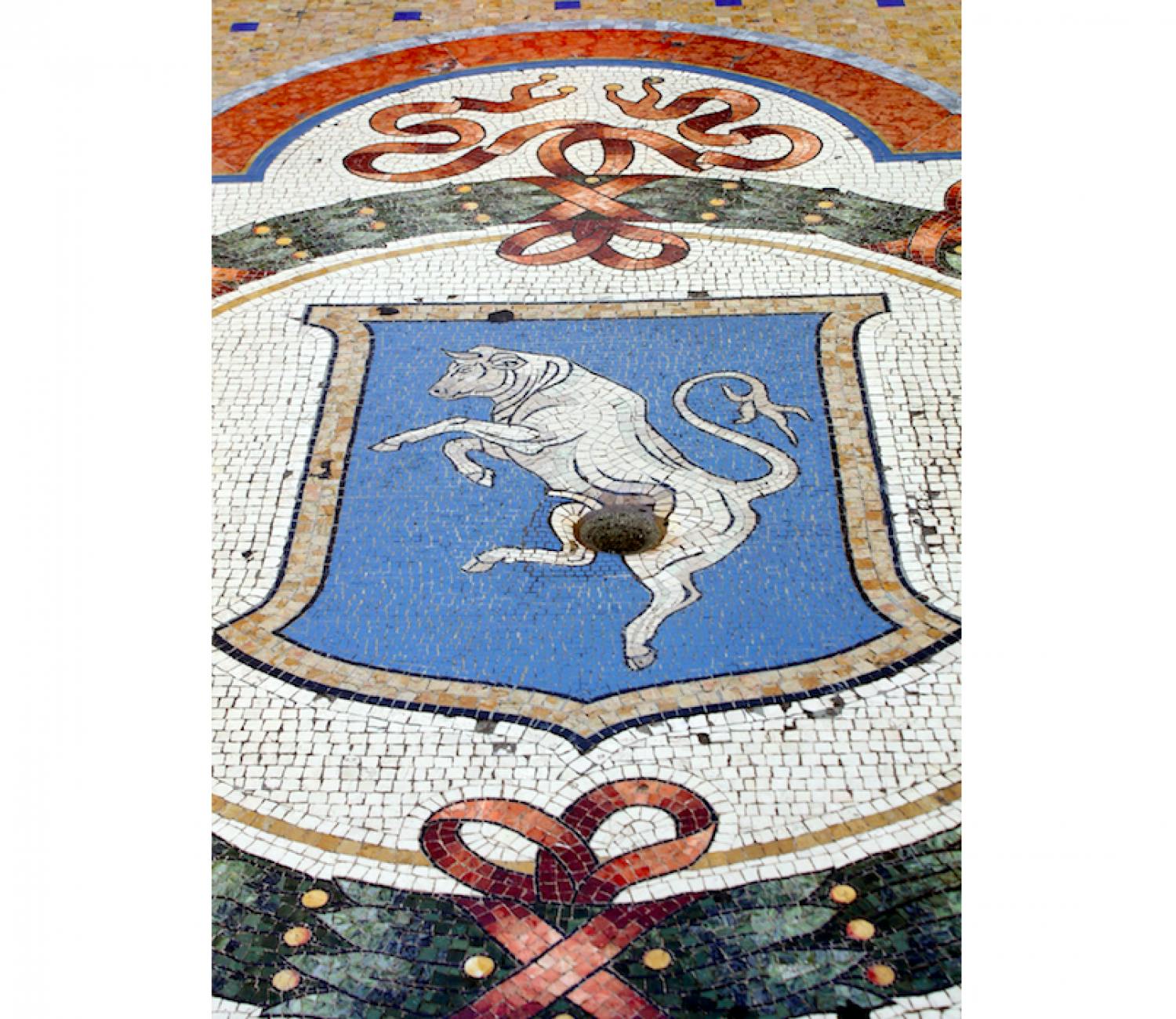Friday the 13th (or 17th), black cats and unorthodox rituals. In honor of the dreaded Friday the 13th, here are some superstitions and folklore from around the world.
“It is not true… but I believe it” was the title of a Peppino De Filippo’s famous three-act comedy written in 1942. The protagonist, Gervasio, believes that one of his employees, Belisario Malvurio, is running his business to the ground, however, things start to improve when Alberto Samaria, a young man with a hump, shows up. In the end, we learn that this young man was none other than the boy with whom Gervasio’s niece was in love. He disguised himself as a hunchback, which according to Neapolitan tradition brings good luck and wealth, to enter the good graces of his lover’s uncle, taking advantage of a popular superstition.
The show pokes fun at superstition and the superstitious, but who among us has not succumbed to some small and innocent superstition? Have you ever owned a lucky charm? Have you ever avoided walking under a ladder? He who has never touched iron or knocked on wood to avoid something should cast the first stone. Back in college, I entrusted my exams scores to a flamingo brooch.
However, there are superstitions that go beyond personal rituals and involve the way of thinking and behavior of entire groups of people.
To ward off the dreaded Friday the 13th, here are 7 (notice the lucky number!) interesting superstitions and folklore from all over the world.
1.Piazza Ravegnana, Bologna
You might think that the students of Bologna are among the world’s luckiest as they study in a city full of art and magnificent views as well as have daily access to the delightful Emilian cuisine. But all that glitters is not gold. In fact, the students of Bologna are forbidden from doing one thing: Crossing through Piazza Ravegnana before completing their degree. They must walk around the square. If they do indeed pass through, they will be cursed and unable to conclude their studies.

Asinelli Tower in Bologna, photo: Michela Simoncini via VisualHunt / CC BY
2. The Bull of Turin at the Galleria Vittorio Emanuele II, Milan
More likely than not, if you’re ever passing through the Galleria Vittorio Emanuele II in Milan, you might notice a crowd huddled around a specific point near the octogonal meeting point of the galleria’s four arms. There lies a mosaic of the Bull of Turin, the city’s symbol, and it’s commonly believed to bring you good luck and fertility if you spin counterclockwise on its testicles one time with your right heel, keeping your eyes shut. Proceed with caution because losing balance while spinning is said to bring incredibly bad luck.

The famous Bull of Turin mosaic at the Galleria Vittorio Emanuele II in Milan. Both locals and visitors alike take this superstition very seriously.
3. The evil eye in Greece
When in Greece, take care when complimenting someone. The Greeks believe that compliments attract envy and, as a result, the evil eye. For this reason, in Greek cities like Athens as well as on the islands, locals usually place a painted blue glass eye on their door jambs and often accessorize with evil eye necklaces and bracelets. Another way to ward off the evil eye is garlic, which is hung in the house or consumed…a great excuse for a tzatziki feast.

Blue glass amulets to ward off the evil eye in Greece.
4. Beware of henna and snakes
What may seem like a harmless beauty treatment can actually be a source of curses and nefarious omens: In India, dying one’s hair with henna is riskier than you might think. In fact, a woman who dyes her hair with henna cannot leave the house after nightfall because she could attract evil spirits. To avoid this unpleasant inconvenience, women cover their heads with poppy seeds to get rid of the spirits. In addition, pregnant women cannot look into the eyes of snakes or they will turn into stone, producing bad karma for themselves and their unborn child. Finally, to avert the evil eye from infants, mothers make up their faces with black kohl on their cheeks and around the eyes.

Henna powder, often used to dye the hair, features prominently many Indian superstitions.
5. The Fairy Forts in Ireland
The Emerald Isle is full of legends and myths starring leprechauns, elves, and fairies. Yet not the pleasant, Sleeping-Beauty-type fairies that might come to mind, but rather irritable, spiteful creatures. For this reason, it is wise not to touch the Fairy Forts, circular constructions in the grass that Ireland’s first inhabitants believed were fairy homes. Superstition states that anyone who touches the Fairy Forts or cuts the hawthorns that grow above them is cursed with the certainty of a terrible death. In support of this thesis many folk tales recount incidents (such as septicemia limbs, fulminating disease, and other pleasant maladies) that happened to those who touched the Fairy Forts.

Hawthorn grows on Fairy Forts in Ireland and if you want to avoid being cursed, don’t touch it!
6. Theatrical Superstitions
The theater world has always held many superstitions. I grew up believing that I should not wear purple to the theater (and though it may seem surprising, I did often wear purple). Purple is the color of Lent and during the Middle Ages, performances were prohibited during this period, therefore this color brings “bad luck” to the theater. Superstitious actors would even cancel a show if they saw a purple stole in the audience.
Every country has its own superstition: Green is an unlucky color in France because it is said that Molière wore it during the last performance of le malade imaginaire in Paris, after which he died; in England you cannot wear blue unless it’s combined with silver because, in ancient times, the high cost of blue fabrics was often the reason that theater companies failed. However, wealthy theater companies could afford blue costumes with silver edges.
Finally, all the insiders know that there is a certain Shakespeare play that should never be mentioned in the theater: Macbeth! There are several legends that try to explain this superstition, one being that a magic spell performed in the fourth act is a real bad luck enchantment and the first ever actor who performed the role Macbeth died a terrible death. It is also said that real witches were cast in the roles for the first-ever performance and that they cursed the text. One less esoteric explanation identifies the root of this superstition more simply: Macbeth has many battle scenes which made it easier for the actors to get injured.
Whatever version you choose to believe, it is important to know what to do in case the Bard’s “Scottish Play” is inadvertently named by someone during the auditions in the theater: the guilty actor must run out of the theater, spin around three times, spit behind his left shoulder and loudly recite a line from another work of Shakespeare.

London’s Globe Theatre, which is practically synonymous with Shakespeare.
7. Which is unluckier: the 13th or the 17th?
If in Italy the most feared day is Friday the 17th, while in many Anglo-Saxon cultures, Friday the 13th is considered unlucky. In Spain and South America, Tuesday the 13th is the bad luck day.
Perhaps it’s the fact that both 13 and 17 are prime numbers, and thus solitary and mysterious? Friday is the day when, according to the Bible, Jesus died, but there is an old saying – also present in Spanish culture – which reads “Neither Venus nor Mars gets married nor parts” because these days they belong respectively to the evil spirits and to the God of War. These are the gods with whom the days Tuesday and Friday were associated.
As for the number 13, there are many other reasons why it is considered unlucky in many cultures. In Norse mythology, Loki is the thirteenth demigod who, unlike the other 12, was wicked while according to Christian tradition, the thirteenth guest at Christ’s Last Supper was Judas. On the other hand, the number 13 is considered lucky in Nepal.

The number 13 is considered unlucky in many cultures.
